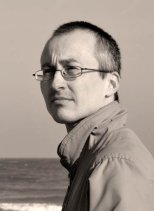
Damian combines art and science to conserve artworks, ensuring their history and beauty are preserved. His professional approach emphasizes scientific examination to determine suitable treatments, always prioritizing maximum reversibility and the use of conservation-standard materials.
Some of his current work can be viewed on this website and include many aspects of conservation and restoration from technical analysis and preventive treatments to full intervention and recovery, major and minor loss replacement and cleaning procedures, as well as research work. The treated works of art range from the 15th Century through Renaissance and Baroque to contemporary art, including large-scale pieces like altars. Damian’s conservation efforts and research have been published in renowned scientific journals, showcasing his blend of traditional techniques and innovative solutions.
He is also a member of the Institute of Conservator-Restorers in Ireland (ICRI).


